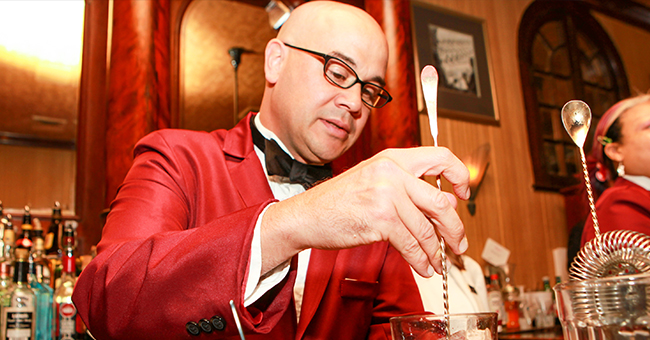Not too long ago, a bartender was someone who would pour you a drink while offering you sage advice. While this still may be the case at your neighborhood watering hole, many bartenders have seen their job descriptions go beyond just being the wielder of a strong martini.
Today it’s not uncommon for bartenders to serve as ambassadors of sorts, representing their bars at competitions, conventions and other industry events around the globe. And while this may have led to an influx of interest in craft cocktails and helped turn many bartenders into household names, it has also birthed a loved and loathed term (depending on whom you ask) within the industry’s lexicon: the “startender.”
While it’s difficult to pinpoint exactly when the word became firmly embedded within the industry’s vernacular, it’s fair to say that it started gaining traction within the past few year as bars began serving more elaborate cocktails that combined bespoke ingredients with cutting-edge preparations. Soon bartenders found themselves traveling around the world on the competitive circuit, seeing their portraits in glossy magazines, and making appearances on TV shows and podcasts. Soon enough, they found their names on the tips of everyone’s lips.
One such person is Chris Hannah of Arnaud’s French 75 Bar in New Orleans, who is often considered one of the foremost bartenders in the world. But please — don’t call him a “startender.”
“I would never call myself, nor consider myself, a ‘startender,’” he says. “I like to consider my work ethic behind the bar the catalyst to the bar’s fame rather than me flying around. But I get it, I’ve been lucky enough to have flown to several other cities and countries to be myself behind the bar. What I do want to say is I work in a town where people can be characters, and to me I feel like we can be part of the ‘play’ that is New Orleans. We can all have a chance to be a character in the play, whether we’re musicians, dancers, chefs, maître d’s, bartenders, hoteliers or servers. So for me I would rather the term be a ‘New Orleans character’ than ‘startender.’”
He also worries that the term could add additional pressure on bartenders who already have their hands full taking orders, preparing drinks and making small talk with patrons.
“[It might] even put weight on the shoulders of bartenders when at work,” he says. “For instance, guests walk into the bar and expect to be ‘wowed’ and ‘mind-blown’ when what you’re really doing is making the same Aviation a bartender can make down the street or across the country. Sometimes too much hype can end in a letdown.”
However, Hannah is quick to point out that bartending at this level does have its perks.
“[One positive aspect is] a boost in publicity and social media for your bar,” he says, “which helps the bar’s revenue, and the bartenders’ income.”
For bartenders working alongside big names, they reap some of the rewards, too. During her yearlong stint at the Dead Rabbit in New York City, bartender Joann Spiegel worked alongside cocktail luminaries Jack McGarry and Sean Muldoon before transitioning to her current gig at Cocktail Kingdom, a barware retailer and manufacturer. (She also works behind the bar at Mace, another New York cocktail joint, with well-known bartender Nico De Soto.)
“[One of the advantages of working at the Dead Rabbit was] the awards won increased traffic to the business, and more traffic is more money, so happy bartenders,” she says. “You were also surrounded by like-minded people who had a constant desire to improve their craft. The support Jack gives for education is amazing; his passion is infectious. Dead Rabbit also comes from investors with deep pockets, so combine that with the success of the location and you have the financial ability to really invest back into your staff — and invest they did. I’d imagine the Dead Rabbit’s educational program for its staff rivals very few.”
However, just like Hannah, Spiegel admits she’s not the biggest fan of the word “startender.”
“I hate that word,” she says. “What does it even mean? Someone who gets more press because they paid PR? I’m not too sure. I know too many amazing bartenders who may not get exposure because they don’t write books, enter competitions, take their gig on the road, or pay for PR. But let me tell you, hands down, these guys are the best at what they do. I have always been a bigger fan of the unsung hero. Give me a bartender that shuns the limelight, but has every reason not to, any day of the week.”





